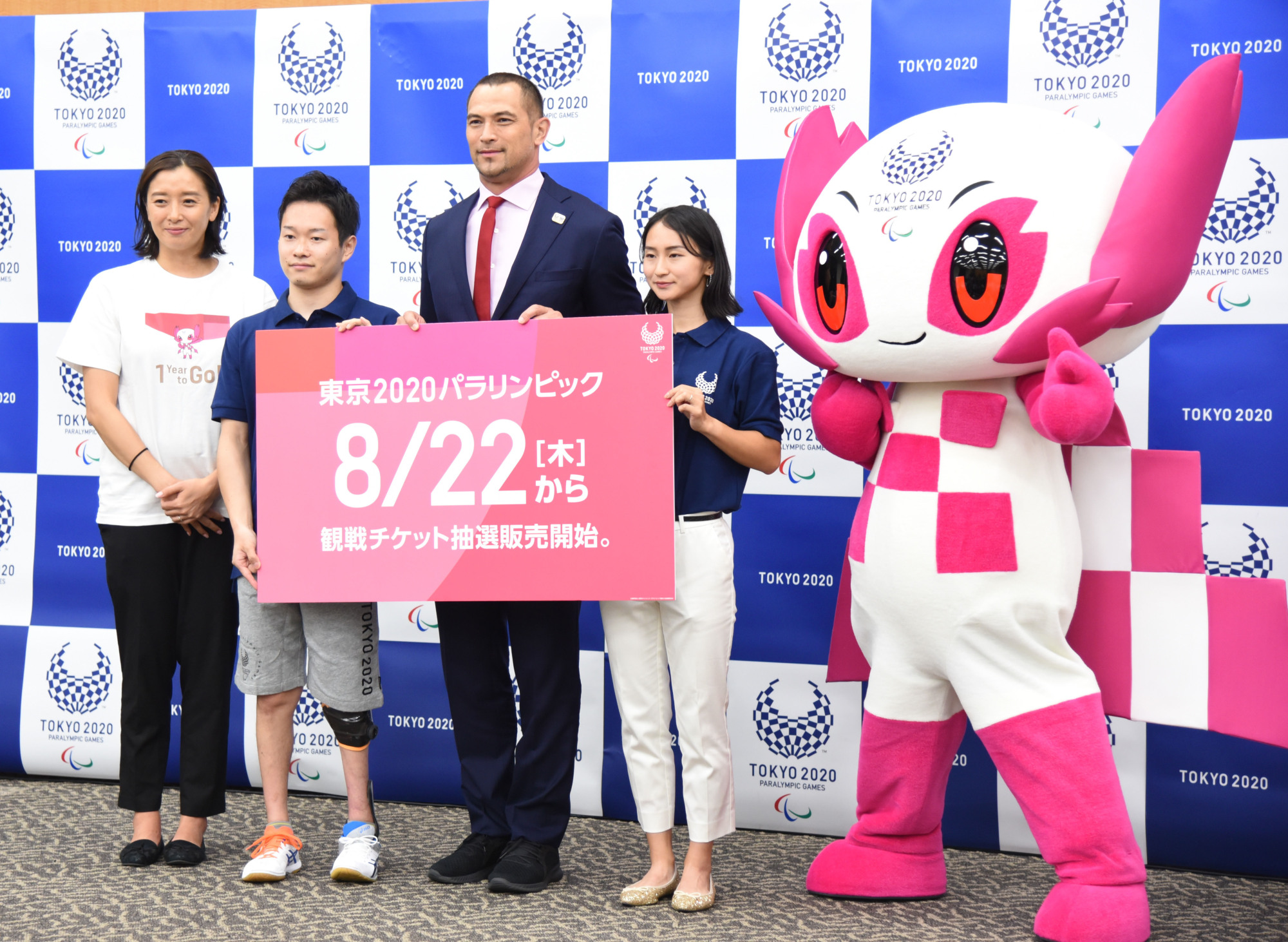With just over a year until the 2020 Tokyo Paralympic Games open on Aug. 25, 2020, officials on Tuesday announced detailed schedules and ticket prices they hope will result in a significant turnout for the entirety of the 13-day event.
Organizers at Tokyo 2020 headquarters highlighted the affordable cost of Paralympic tickets, which for competitive events will range between ¥900 and ¥7,000. Tickets for the opening and closing ceremonies will cost between ¥8,000 and ¥150,000.
"We are putting in the same effort as we have the Olympics," said Tokyo 2020 ticketing director Hidenori Suzuki. "Our goal is to bring in as many children and young people as possible at an affordable price."
"With such a huge stage, the athletes will be doing their best, and they expect families and children to watch," added Masaaki Komiya, the Tokyo 2020 vice secretary. "We are encouraging as many people as possible to experience the Paralympics in person."
While acknowledging the challenge of selling out the competition as Rio de Janeiro did in 2016 and London in 2012, Komiya touted programs that will distribute one million tickets for the Tokyo 2020 Games to schoolchildren in Tokyo and elsewhere.
"Watching athletes with impairments perform at such a high level encourages children to grow," Komiya said. "Tokyo schools will be receiving the most tickets but we will (also) be targeting areas affected by natural disasters such as Sendai.
"We are still planning our venue layouts so we don't yet have a final number of available seats, but we want to fill them (like Rio and London did)."
The competition schedule, which will feature a record 4,400 athletes competing in 540 disciplines across 22 sports, has been balanced in order to encourage attendance by families and children as well as mitigate heat-related risks to participating athletes.
Just over a third of the 300 sessions will include medal events, with 63 held during the competition's "Golden Sunday" on Aug. 30. Another 61 medal events will take place Sept. 1.
"The impact on society from Paralympic sports is significant," Tokyo 2020 sports director Koji Murofushi said. "The educational aspect, the opportunity to think about inclusivity, beyond impairment. There's a good chance for children to see such athletes' performance in front of them and that has a high educational value."
The latter half of the schedule features two new additions to the Paralympic calendar in badminton, which will conclude on Sept. 5-6, and taekwondo, which will see medals awarded between Sept. 3-5.
The wheelchair rugby competition will take place between Aug. 26-30 at Yoyogi National Gymnasium, while wheelchair tennis, in which Japan's Shingo Kunieda and Yui Kamiji will be expected to play a starring role, will have daily sessions between Aug. 28 and Sept. 5.
Runner Sae Shigemoto, who took bronze at the 2016 Rio Paralympics in the women's 400 meters (T47), was excited to learn that her category's final would take place on the night of Saturday, Aug. 29.
"My family couldn't come to cheer me in Rio, so it's wonderful that the competition will take place on Saturday," Shigemoto said. "I hope a lot of families will come to watch us."
Residents of Japan will be able to apply for the first Paralympic ticket lottery between Aug. 22 and Sept. 9, with results announced on Oct. 2. The Paralympic lottery process will be identical to that of this summer's Olympic lottery, with applicants able to secure a maximum of 30 tickets to Paralympic events.
"As with the Olympic (lottery), we expect the application site to slow down at the very start and end of the lottery so we ask for applicants to apply at different times," said Suzuki, recalling the unprecedented wave of interest that brought the Olympic ticketing site to a standstill.
A second lottery will be held in early 2020, followed by an additional first-come, first-served sales phase later in the spring.




